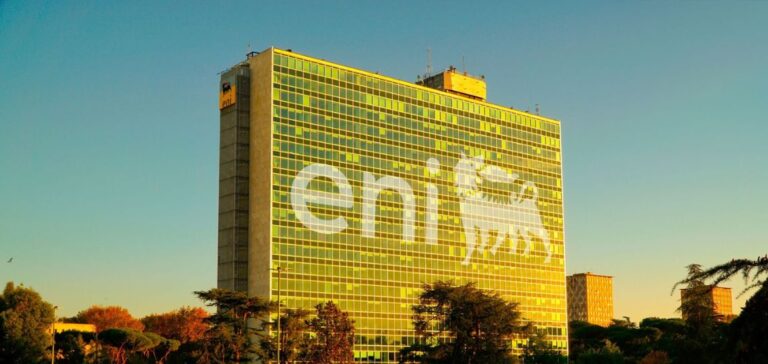Eni has announced net earnings of €661 million for the second quarter of 2024, up 125% year-on-year.
Although this figure is below the forecasts of Factset analysts, who were expecting 1.46 billion euros, it remains significant in a context of rising oil prices.
Group sales rose by 11% to 21.7 billion euros, despite a performance slightly below analysts’ expectations.
Adjusted net profit, excluding exceptional items, came in at 1.5 billion euros, down 21%, but ahead of analysts’ forecasts of 1.43 billion euros.
Claudio Descalzi, CEO of Eni, comments: “We are recording impressive growth in oil and gas production, biorefining and renewable energy production capacity”.
These financial results were well received on the Milan Stock Exchange, where Eni shares climbed 4.18% to 14.60 euros.
Production and Projections
Eni’s hydrocarbon production rose by 6% to 1.7 million barrels per day in the second quarter.
For 2024, Eni expects to maintain production at the upper end of the range of 1.69 to 1.71 million barrels per day. This increase is underpinned by a strategy of diversification and growth in renewable energies. The price of a barrel of Brent crude from the North Sea rose by 8%, averaging $84.94 in the second quarter.
Eni continues to forecast a barrel price of $86 for the year, despite ongoing tensions in the Middle East.
By contrast, the benchmark price for natural gas fell by 11% to 33 euros per megawatt-hour (MWh) in the second quarter.
Strategy and Partnerships
Eni is pursuing a “satellite” strategy, aimed at creating independent units capable of attracting investors.
This approach is illustrated by an exclusive agreement signed with the American investment fund KKR for the sale of a minority stake in Enilive, the subsidiary specializing in biorefining.
The agreement provides for the sale of a stake of between 20% and 25%, valuing Enilive at between 11.5 and 12.5 billion euros.
Claudio Descalzi emphasizes: “We are speeding up disposals because there is a lot of interest in our assets”, almost confirming the target of generating 8 billion euros by 2027 through the sale of minority stakes and non-strategic assets.
At the same time, Eni announces a partnership with Petronas, the Malaysian state-owned energy group, and Euglena, a Japanese company specializing in green algae.
The aim of this partnership is to develop a biorefinery in the state of Johor, in southern Malaysia.
The biorefinery, operational by the second half of 2028, will produce sustainable jet fuel and other biofuels to meet the growing demand from the global aviation and transportation industries.
Prospects and challenges
Eni is well positioned in the energy sector thanks to its strategy of diversification and growth.
Rising oil prices, combined with increased hydrocarbon production and renewable energies, are underpinning the Group’s financial performance.
However, Eni has to navigate in a complex environment marked by fluctuating oil prices and geopolitical tensions.
The collaboration with Petronas and Euglena to develop a biorefinery in Malaysia represents an important strategic step forward.
This initiative reinforces Eni’s commitment to renewable energies and biofuels, while opening up opportunities to attract new investors.






















